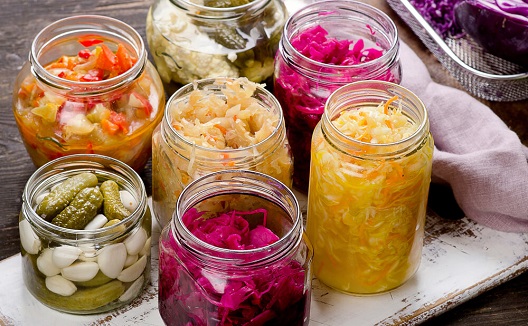“Take this supplement and you’ll lose weight fast!” “Drink this tea to feel happier and more energetic!” “Put this mask on your face to look 20 years younger—overnight!” There are so many health products out there that it can be really hard to figure out what’s good for you, what might actually solve a health issue and what might even be harmful. One such product that has gotten a lot of attention lately is probiotics (or “live and active cultures”).
What are probiotics?
You’ve probably heard that we have “good” germs in our stomachs and intestines that help us digest our food and keep us healthy. That’s pretty much what probiotics are. Most of the microorganisms found in probiotics are bacteria in the Lactobacillus and Bifidobacterium groups, along with some types of yeast.
What do they do?
Well, there are more than 500 strains of probiotics, and they don’t all do the same things. But research suggests that a good source of probiotics that contains several different strains could provide these benefits:
- Help keep a healthy population of microorganisms in the digestive system
- Rebuild the microorganism population after illness or after taking antibiotics
- Compete against “bad” germs in the body to prevent disease and inflammation
- Help promote a healthy weight
- Help prevent diarrhea and constipation
- Help the body produce B vitamins
Where can I find probiotics?
You can gobble down billions of friendly bugs in tasty foods and drinks like:
- Yogurt (but stick to lower sugar or unsweetened varieties)
- Some cheeses
- Kefir, lassi and other fermented dairy products
- Sauerkraut
- Kimchi
- Pickled veggies
- Kombucha tea
- Sourdough bread
- Lots of soy products, like miso and tempeh
There are also lots of foods that have probiotics added, as well as probiotic supplements that can be taken in capsule form or mixed into drinks as powder. If you choose to go the supplement route, be sure and read the labels. The ideal probiotic supplement will list several live strains of microorganisms and offer a guarantee that they will survive in your digestive system.
Are probiotics safe?
Probiotics aren’t regulated by the Food and Drug Administration (FDA), but they’re generally considered to be safe in healthy adults. Just to be safe, anyone considering a probiotic supplement should talk to their health care providers first, especially pregnant women, people with weakened immune systems and those being treated for fungal infections.




